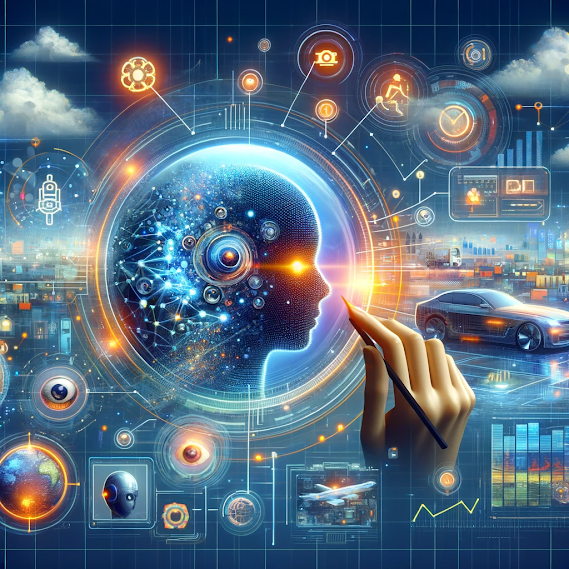Harnessing the Power of AI Assistants for Workplace Transformation
Harnessing the Power of AI Assistants for Workplace Transformation
In the ever-evolving landscape of the business world, Artificial Intelligence (AI) has emerged as a cornerstone of innovation and efficiency. Yet, the true essence of leveraging AI's capabilities extends beyond its technical prowess to a more fundamental aspect of human interaction: trust. As AI takes on increasingly nuanced roles in decision-making and problem-solving, the success of businesses hinges on the trust workers and end users place in these AI tools.
The Critical Role of AI in Achieving Business Goals
Recent studies highlight the tangible impact of AI on business success. Companies with a dedicated AI strategy are 1.7 times more likely to achieve their business objectives, underscoring the importance of not only adopting AI tools but also fostering a culture of trust and understanding around them. Top-performing companies recognize that the real value of AI lies in how these tools are integrated and trusted within the organization.
Building Trust in AI: A Human-AI Partnership
The dynamics of trust in AI closely mirror those found in successful team-building efforts, emphasizing the need for openness, rapport, and honest dialogue. Viewing AI as a trusted copilot, rather than just another tool, is crucial for its successful integration into daily workflows. This approach demands a shift in perception, recognizing AI assistants as dependable partners that enhance human capabilities rather than replace them.
Overcoming the 'Black Box' Challenge
One of the most significant hurdles in AI adoption is the 'black box' problem, which refers to the opacity of AI decision-making processes. This lack of transparency can erode trust and hinder the effective use of AI in the workplace. To address this challenge, businesses are increasingly focusing on data transparency, algorithmic explainability, and the reliability of AI systems. These efforts aim to demystify AI operations, making them more accessible and understandable to all users.
Paving the Way for a Transparent AI Future
In response to the demand for greater transparency, companies are adopting data-collection methods that allow users to see, understand, and control the data they provide to AI systems. Moreover, involving frontline workers in the development and deployment of AI tools is proving to be an effective strategy for creating more interpretable and trusted systems. This collaborative approach ensures that AI solutions are not only technically proficient but also aligned with the needs and expectations of their human users.
The Importance of AI Reliability
As AI systems are inherently probabilistic, ensuring their reliability is paramount for widespread adoption. Acknowledging and addressing the limitations of AI is a critical step towards building trust. The future of AI in the workplace is increasingly focused on generative AI, which emphasizes AI's role in augmenting rather than competing with human creativity. This shift represents a move towards AI systems that are partners in the creative process, offering insights and assistance that enhance human innovation.
Embracing AI as Partners in Innovation
The successful implementation of AI in companies is not just about integrating new technologies; it's about reimagining the role of AI as assistants and partners in the creative journey. By combining human creativity with AI's analytical capabilities, businesses can unlock new horizons for innovation and efficiency. This synergy opens up exciting possibilities for problem-solving, product development, and customer engagement, setting the stage for a new era of business success.
Conclusion: A New Era of Business Transformation
The integration of AI assistants into the workplace represents a pivotal shift in the business landscape. By building trust and understanding around AI technologies, companies can harness their full potential to streamline operations, enhance decision-making, and foster innovation. The journey towards a future where AI and human expertise coalesce promises to redefine the essence of work, paving the way for a more responsive, efficient, and creative business environment. As we stand on the brink of this transformation, the success of businesses will increasingly depend on their ability to embrace AI as a trusted partner in their pursuit of excellence and innovation.

.jpeg)
.jpeg)


Comments
Post a Comment